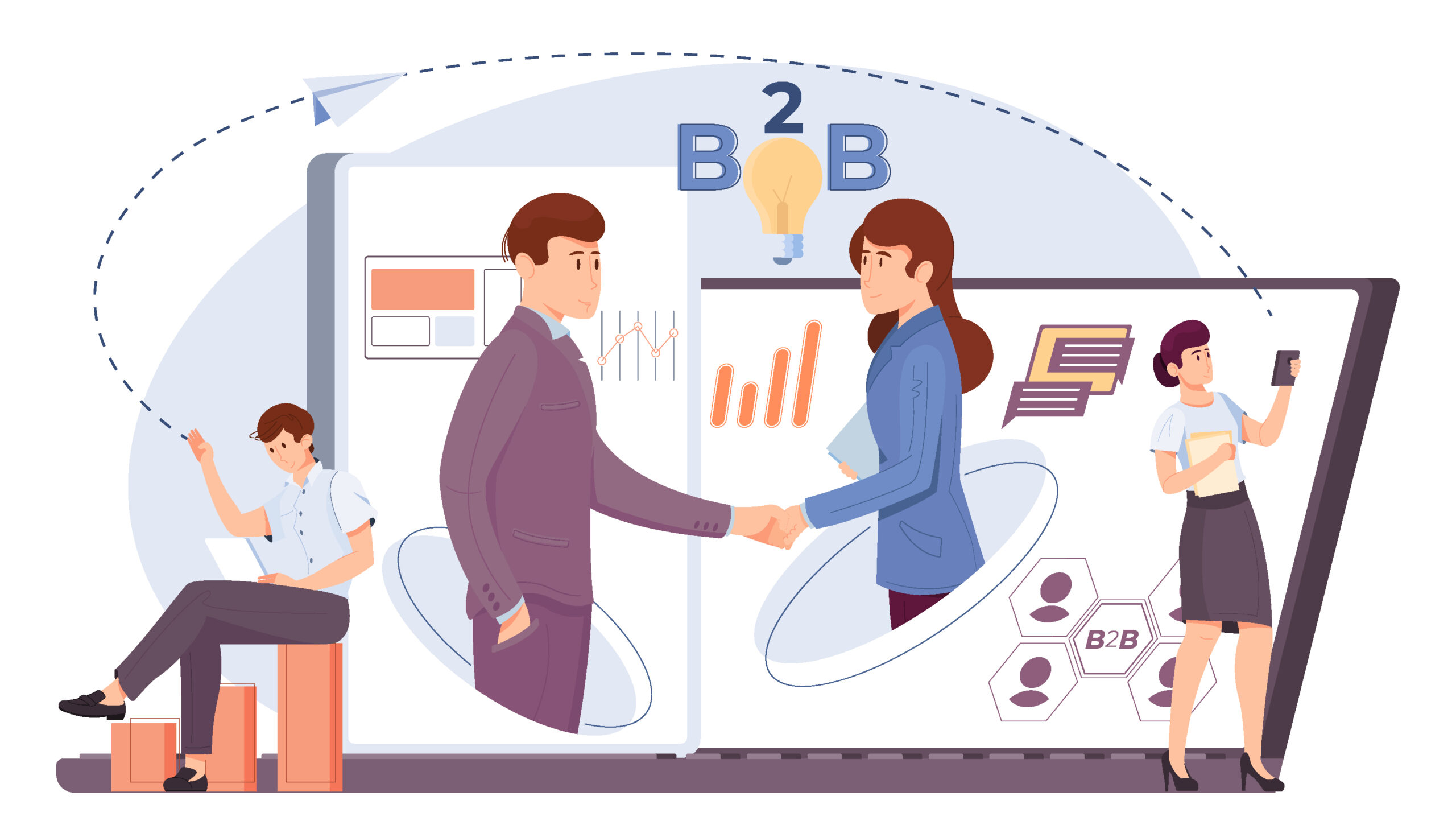When the new millennium began in the year 2000, almost everyone who watched ‘2001: A Space Odyssey’ held their breaths that we might finally possess this technology to visit extraterrestrial life. Even though the predictions made came from a science-fiction cult classic, there’s no denying that we have come a long way in innovation and technology since the last decade. Harnessing technologies like brand digitization, marketing automation, artificial intelligence (AI), and data analytics are just some of the examples.
Therefore, it’s safe to say that 2030 may not be the beginning of the robotic dystopia. Still, it certainly will be right in the era when high-end B2B marketing would be controlled entirely by a collaborative effort from human understanding, advanced machine learning, and behavioral insights, which will influence a seller’s skills and processes. With the COVID-19 pandemic revolutionizing how brands interact with their customers, technology would still cause positive disruptions across all verticals. This could cause businesses to strategize thoughtful and personal customer journeys across multiple channels for getting faster, maximum conversions. While 2030 may seem far away, in reality, businesses need to think and implement such techniques today, to stay ahead of their competition.
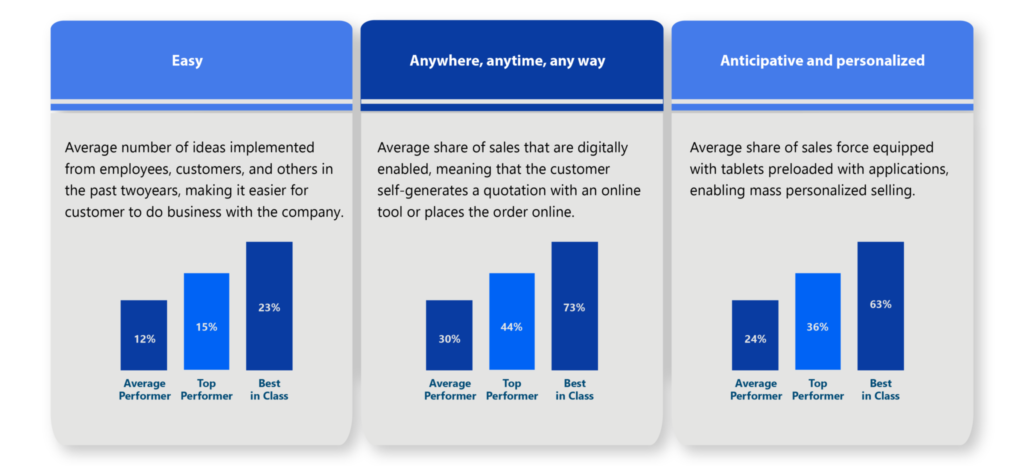
According to Forbes, currently, sales representatives, in general, spend 64.8% of their time on non-revenue-generating activities, and less than 18% in Customer Relationship Management activities. Such events have led to massive repercussions where brands today struggle to keep themselves from fading away in this dynamic market. As a last resort, they try to paint a picture of customer utopia in expectation of getting some head-start but instead fall straight through the vicious cycles of customer retention, sales, and marketing mismanagement, thus falling deeper, faster. The future is the exact opposite! In the future, sales jobs would be an amalgamation of intelligent customer systems and human knowledge, focusing on automating an augmented seller’s skills and processes. It would lead businesses to interact with customers in ways never done before with big data, customer mapping, and value-laden experiences.
The Emergence of B2B Science: A New Paradigm
B2C sales have reigned all these years because of its ability to access unlimited information about their customers through compelling, convenient tools and techniques. Similarly, for B2B sales, the rich history of having Electronic Data Interchange (EDI) much before the internet was created shows how advanced the industry has been and rising to the challenges of the clients’ dynamic demands. The buying process is becoming more complex as the number of decision-makers in each buying process increases since the customers take heed from their research, influencers’ reviews, peer recommendations, etc. Personalization plays a significant role as brands seek customized solutions over everything else, much like individual consumers. Here’s how it eventually leads to the following practices:
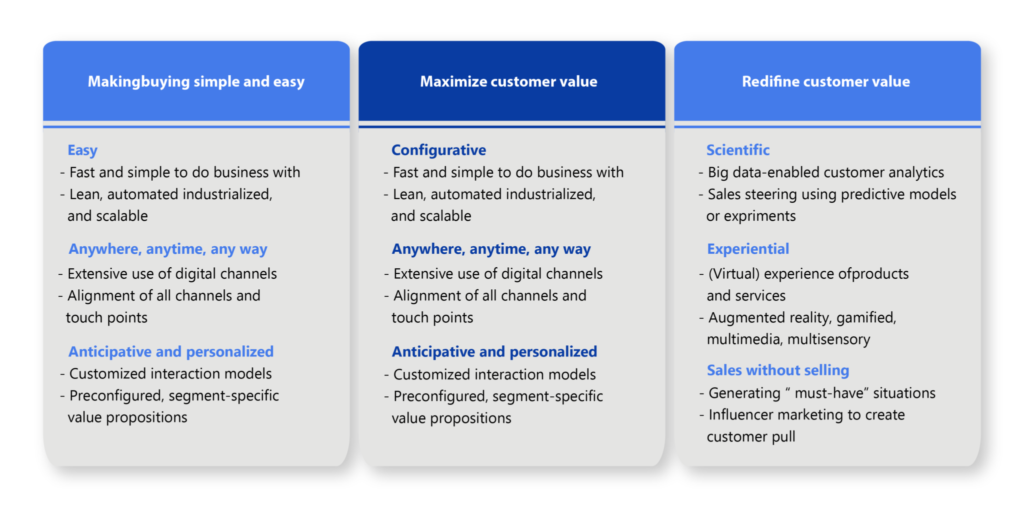
Customer Experience Redefined
According to Forbes, 53% of companies use big data analytics to propel accurate, reliable customer insights that can effectively make crucial decisions to increase sellers’ success chances. The entire sales cycle would be a catalyst for the seller to impact the customers, enriching their experience directly. Integration of Customer Relationship Management (CRM) and marketing automation companies software for seamless lead nurturing and customer journey tracking. As Gartner predicted, the customer experience would be more about immersive tech, 80% of people keen to accept drone deliveries and 78% of people relying on VR to understand how an enterprise’s end product would look. This would comprise the B2B sellers’ DNA in terms of use cases, engagement highlights, thought leadership, and intelligent self-service models that your customers would crave throughout their journey.
Automating Customer Relationship Management and Being Human
Reports show that corporations now believe that two-thirds of their customer engagement activities can be handled by smart machines by 2030. It surely doesn’t mean dehumanizing or ‘Ex-Machina’ sort of a situation, but it tells us that it would be the dawn of the right balance between self-sufficiency and interaction. When iPhones were first launched in the market, Apple did educate the buyer on a new way of completing tasks, many at a time.
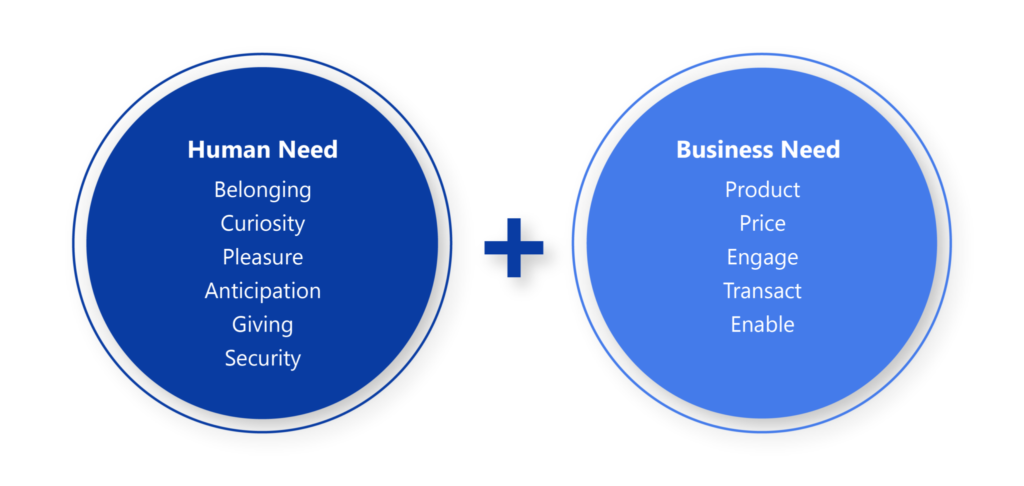
We would live in a world where the ‘what,’ ‘why,’ and ‘how’ would no longer be limited to unstructured data sources; and instead come from the profound wealth of customer data to which B2B sellers would have unrestricted access. Companies coming together to pool data and shape product scope into value-added services based upon the insights derived from such analytics would be coherently found.
Agile and human-centric business models can enhance the sales enablement abilities of an organization. It could be streamlined by leadership alignment, identifying and hiring the right professionals, strategic KPIs for performing sales-centric activities, and effective crm implementation for streamlined customer relationship management.
Rewiring Lead Generation and Sales Algorithms
Addressing fundamental strategic issues by creating an augmented customer profile based on available data and studying social media behavior. Technology would be the strongest enabler in sales and could include promising tools that can understand and segment the customer intent from emails, and take superfast, weighed-out strategic decisions. AI could help brands understand computer vision and have breakthrough lead-generating channels – built for all teams and terrains.
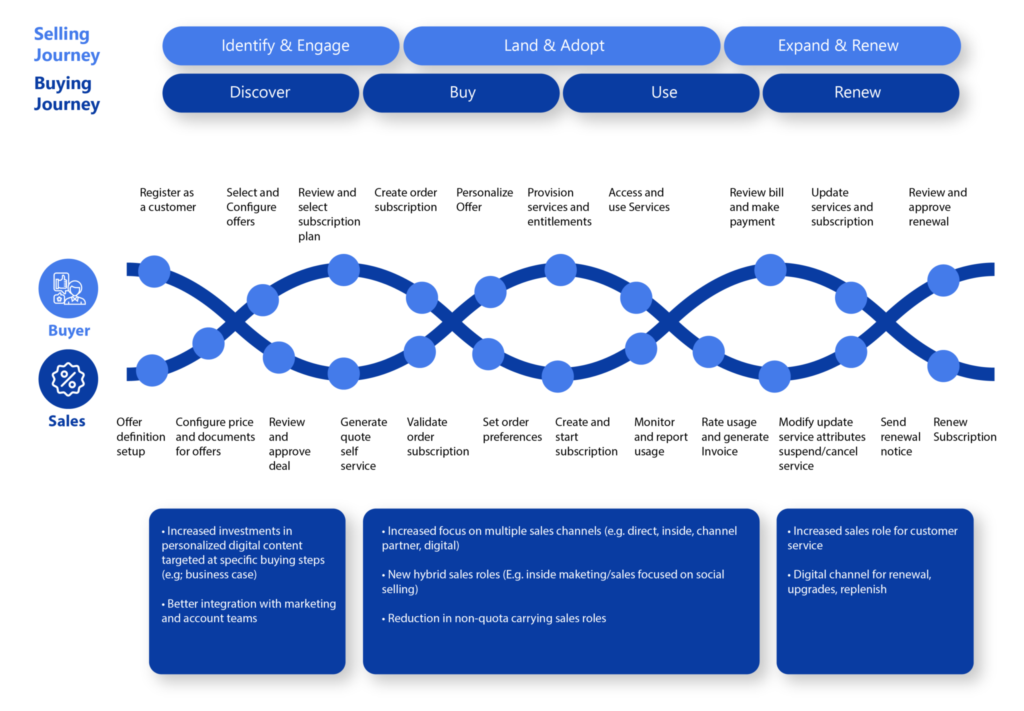
If data is currency, then the science of sales could be a necessity that is backed by proven, scientific numbers and machine-crunched data; rather than pure gut instinct and ambiguity. As the AI bots would go a long way in nurturing leads initially by delivering actionable data, it would empower them to close the deal. On the other hand, social media would be an excellent weight put on companies’ shoulders to develop value products and upskill the human aspect of sales. With the dynamics of the growing market and its sophistication, business leaders need to grow in their roles in cross-functional and cross-geographical skill sets.
How Can B2B Brands Get To It Faster?
With so many things to collate and a plethora of new technologies to implement, it can get overwhelming to understand where companies stand and how they can go in the right direction. But the following key steps can help in bringing out major transformations gradually:
- Self-Assessment – Begins with the understanding of the customers’ preferences and looking for underlying sales capabilities.
- Thinking Long-Term – Build a five-year model-based plan for better identification of opportunities.
- Hustle Harder – It can be a hit-and-trial method for refining current sales pipelines, an agile methodology, or an aggressive, process-based approach to reach ultimate results.
Remember, the future is now. With an honest approach, B2B businesses can lift their sales management with the rising tide, or when not heeded, can choose to drag it right under it. In this science-fiction movie, businesses are the protagonist who can do it all.
Worxwide Consulting is a growth consulting firms that helps companies drive digital growth through Sales Transformation. We provide actionable strategies – Sales automation, sales enablement, and sales acceleration – to fuel your business expansion and success. Worxwide is based out of the US, UK, and India, offering bid consulting, sales transformation, user experience, and customer experience design services
tx, USA

London, UK

India


